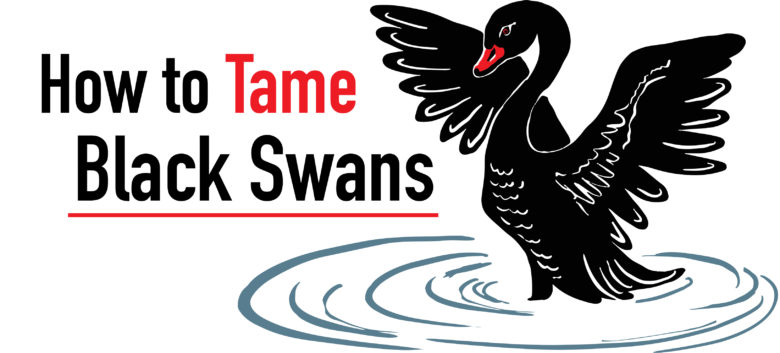How to Tame Black Swans and Prevent the Next Global Catastrophe
As humans, we tend to do well with the typical, the ordinary, the expected. We rely on experience. This — quite naturally — makes it hard for society to anticipate, prepare for, and handle a pandemic like that seen with COVID-19. And — caught off guard — a crisis then demands our full attention: Failing adequate preparation, we desperately need “all hands on deck” to improve the prospects for controlling spread of the virus, helping the sick, developing a vaccine, and handling the crushing economic fallout of this pandemic.
As we eventually recover, the horror of COVID-19 will remind us to be better prepared and perhaps gain the ability to forestall some future pandemic. But there’s a risk that we’ll miss the deeper lesson, not seeing the danger that other, potential “black swan” events (Taleb, Nassim Nicholas (2007) The Black Swan: The Impact of the Highly Improbable) also present for society.
Our current crisis arises in part because of the virus, but in part because we live in such a fast-paced, globally connected world. Given this rapid change, given this ever-increasing connectivity and complexity, we must presume that the risk of black swan events — in general, not just pandemics — will only increase in the future.
So, how do we look ahead? Now is a good time to consider the conditions that allow black swans to breed and to find new ways to reduce the risk for society. Read the full story on Medium.

Leave a Comment